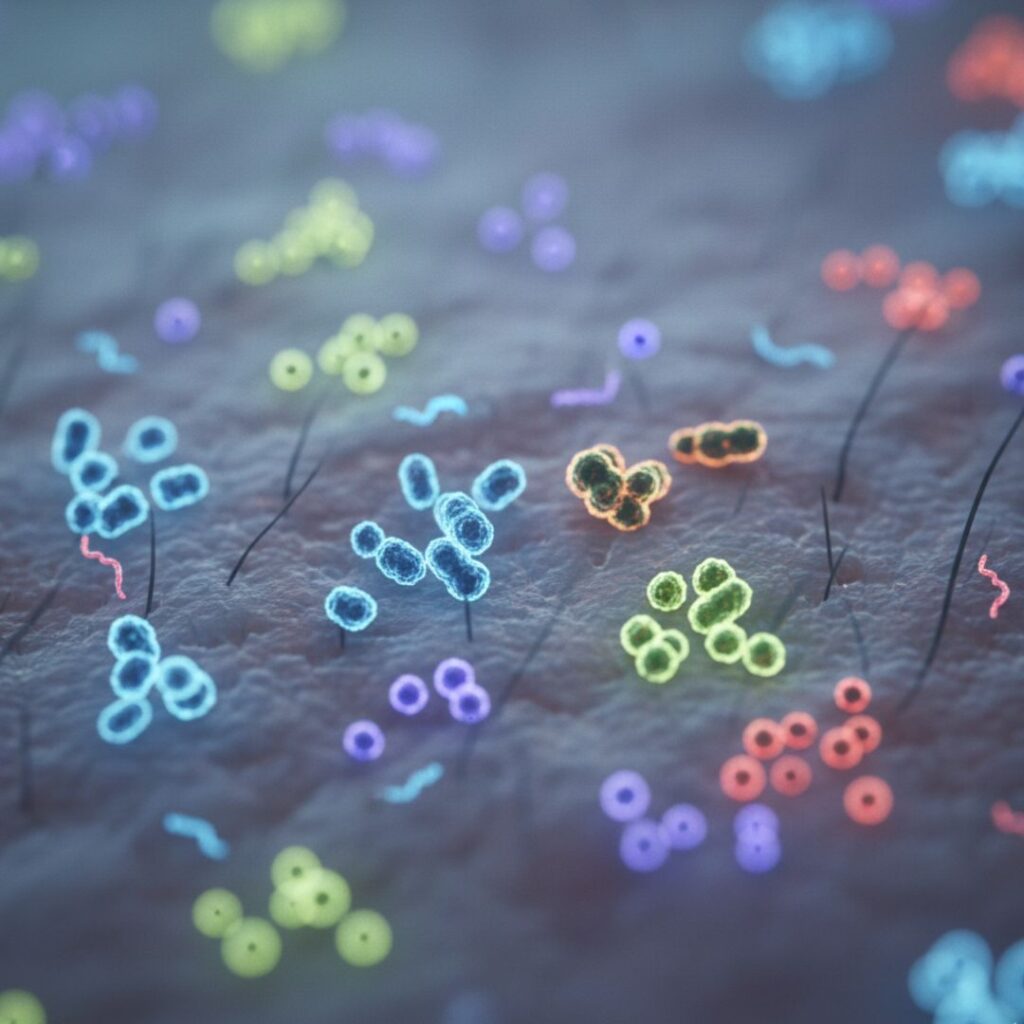Did you know your skin is home to millions of tiny organisms called the skin microbiome? These bacteria, fungi, and viruses aren’t harmful—in fact, they play a crucial role in keeping your skin healthy, glowing, and balanced.
When the microbiome is disrupted, it can lead to common issues like acne, dryness, sensitivity, or irritation. Understanding how your skin microbiome works is the first step toward healthier, radiant skin.
What Is the Skin Microbiome?
Your skin’s microbiome is a mix of “good” and “bad” bacteria living on its surface. Good bacteria, like Staphylococcus epidermidis, help protect your skin from harmful microbes, maintain hydration, and keep inflammation in check.
When this balance is disturbed by stress, poor diet, pollution, or harsh skincare products, problematic bacteria can take over, causing breakouts and irritation.
What Affects Your Skin Microbiome?
Several factors can influence your skin’s natural ecosystem:
- Diet and Hydration: Nutrient-rich foods and enough water support healthy bacteria, while deficiencies can weaken your skin’s defenses.
- Skincare Products: Harsh soaps and strong cleansers can strip your skin of good bacteria. Gentle, microbiome-friendly products work best.
- Environment: Pollution, sun exposure, and weather changes can disrupt the balance.
- Lifestyle: Stress, lack of sleep, and smoking can negatively affect your skin health.
A visit to a trusted Dermatologist in Roorkee can help you identify what’s impacting your skin microbiome and guide you toward restoring it naturally.
Why a Healthy Skin Microbiome Matters
A balanced microbiome protects your skin from infections, reduces inflammation, and improves natural healing. Skin with a healthy microbiome is less prone to acne, eczema, rosacea, and even early signs of aging. Supporting your skin’s natural ecosystem ensures it stays strong, resilient, and glowing.
Tips to Support Your Skin Microbiome
Here’s how you can care for your skin’s microbiome every day:
- Use Gentle Cleansers: Avoid products that strip your skin’s natural oils.
- Moisturize Regularly: A well-moisturized skin barrier encourages beneficial bacteria.
- Eat Well: Include probiotics and antioxidants in your diet to nourish your skin from within.
- Limit Antibacterial Products: Overuse of sanitizers or antibacterial creams can kill good bacteria.
- Seek Expert Guidance: Regular checkups with a Skin Specialist in Roorkee ensure your skin stays balanced and healthy.
When Professional Help Is Needed
Sometimes lifestyle changes aren’t enough. If your skin continues to break out, feel sensitive, or look dull, it may need professional care. A Dermatologist in Roorkee can:
- Analyze your skin microbiome to understand its unique needs
- Recommend tailored skincare routines
- Suggest advanced treatments like topical probiotics or microbiome-friendly therapies
These approaches restore your skin’s balance, reduce inflammation, and promote long-term health.
Signs Your Skin Microbiome Needs Attention
You might need professional help if you notice:
- Frequent breakouts
- Redness or irritation
- Dry, flaky, or sensitive skin
- Slow-healing wounds
- Dull or uneven texture
A Skin Specialist in Roorkee can help prevent these issues from worsening and guide you to a glowing, healthy complexion.
Conclusion
Your skin microbiome is a hidden powerhouse that affects how your skin looks, feels, and defends itself. Supporting it through gentle skincare, a balanced diet, and expert guidance is key to healthy, radiant skin.
At Dr. Hera Skin and Hair Clinic, Dr. Hera Tabassum, an experienced Dermatologist in Roorkee, specializes in microbiome-friendly treatments that nurture your skin from within. By restoring balance to your skin’s ecosystem, she helps you achieve long-lasting health and radiance.

